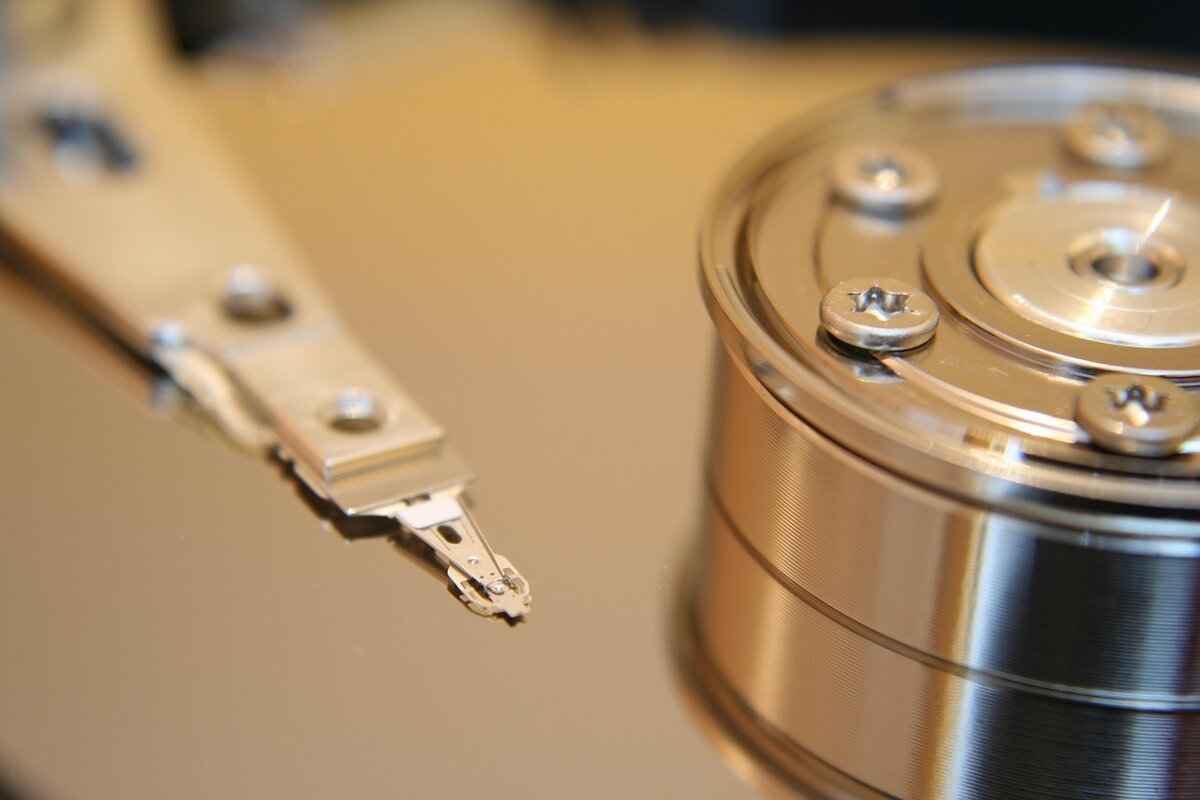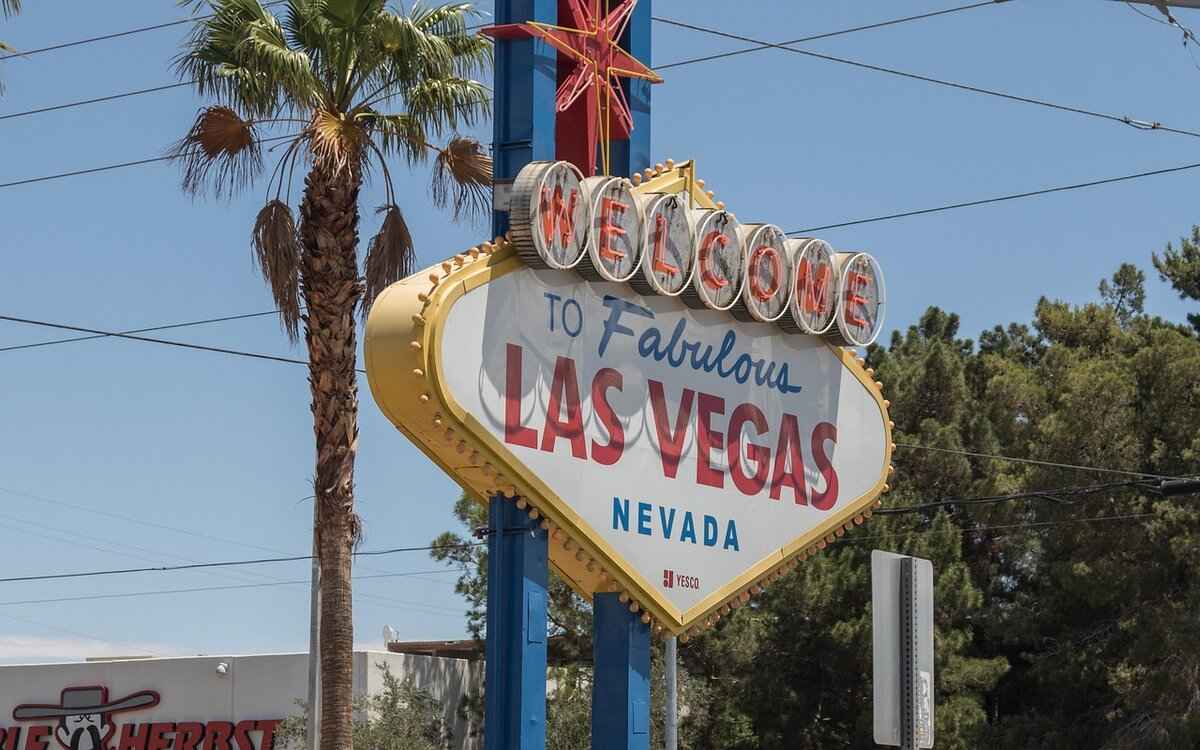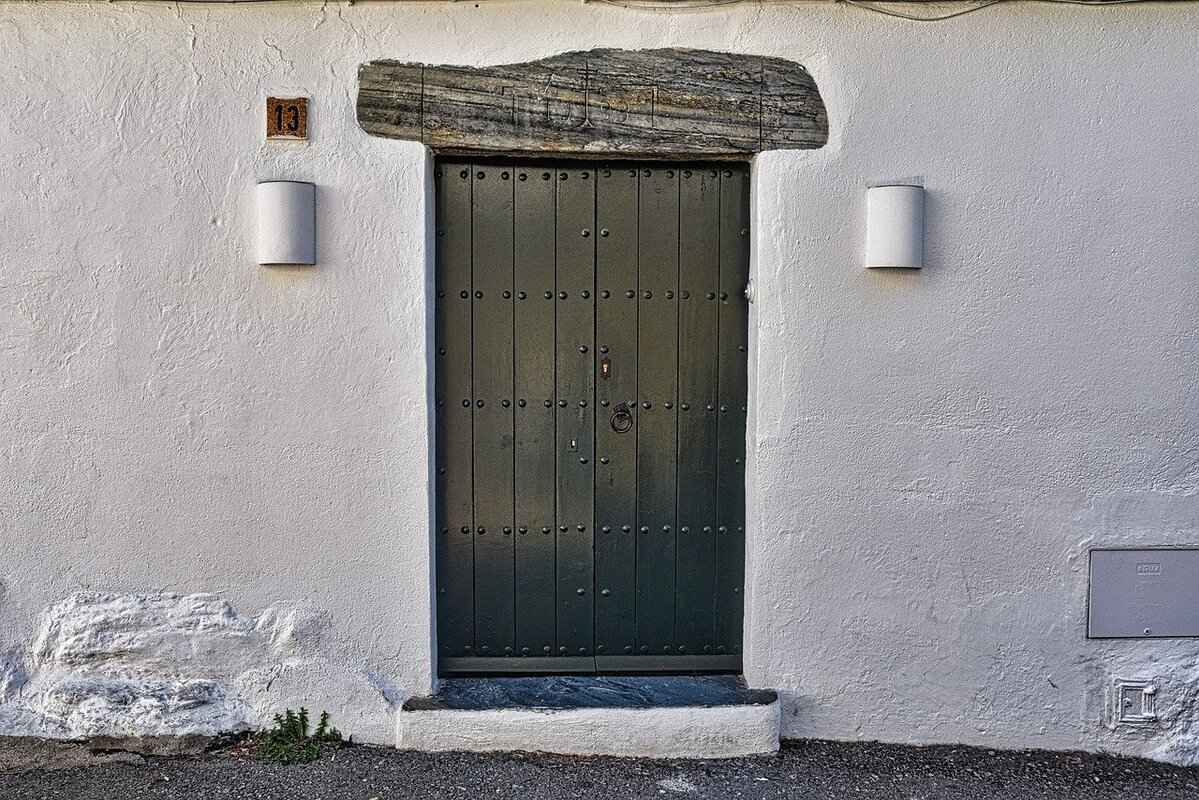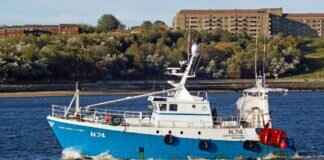This article serves as a comprehensive guide for individuals seeking to secure a part-time data entry job without any prior experience. It will delve into essential skills, effective job search strategies, and valuable tips for success in the field.
Understanding Data Entry Jobs
Data entry jobs primarily involve the inputting, updating, and management of data across various formats. Aspiring candidates must understand the nature of these roles to navigate the job market successfully, especially when lacking experience.
Essential Skills for Data Entry
Although prior experience may be absent, certain skills are crucial for data entry positions:
- Typing Speed and Accuracy
- Attention to Detail
- Proficiency in Software Applications
Where to Find Data Entry Jobs
Locating part-time data entry jobs can be challenging, but several platforms can help:
- Online Job Boards: Websites like Indeed and Glassdoor are excellent resources.
- Freelancing Platforms: Upwork and Fiverr allow individuals to build portfolios and gain experience.
Crafting an Effective Resume
A standout resume is essential. Candidates should:
- Highlight Transferable Skills: Emphasize skills like organization and communication.
- Use a Professional Format: A clean layout enhances readability.
Preparing for Interviews
Preparation is key to impressing potential employers. Candidates should:
- Anticipate Common Questions: Be ready to discuss skills and experiences.
- Demonstrate Enthusiasm: Show eagerness to learn and grow in the role.
Tips for Success in Data Entry
Success in data entry requires ongoing skill development:
- Engage in Continuous Learning: Online courses can keep skills sharp.
- Network with Professionals: Networking can lead to job referrals and insights.
Conclusion
Securing a part-time data entry job without experience is achievable through skill enhancement, strategic job searching, and thorough interview preparation. By following these guidelines, candidates can significantly improve their employability and excel in the field.

Understanding Data Entry Jobs
is essential for individuals looking to enter the workforce, especially in a role that requires precision and attention to detail. Data entry jobs typically involve inputting, updating, and managing data across various platforms and formats, including spreadsheets, databases, and online forms. For those without prior experience, grasping the nuances of these roles can significantly enhance their chances of securing a position.
In today’s digital age, the demand for data entry professionals continues to grow as businesses increasingly rely on accurate data for decision-making. The role may vary from simple data input tasks to more complex responsibilities such as data analysis and reporting. Therefore, understanding the specific requirements of a data entry job is crucial for aspiring candidates.
Data entry jobs can be found in numerous industries, ranging from healthcare and finance to retail and education. This diversity allows candidates to choose a sector that aligns with their interests and skills. Furthermore, many companies offer part-time positions, making it an attractive option for students or individuals seeking flexible work hours.
To succeed in a data entry role, candidates should focus on developing essential skills such as:
- Typing Speed: A fast typing speed with high accuracy is vital, as it directly impacts productivity.
- Attention to Detail: Precision is crucial in data entry to ensure that information is recorded correctly.
- Software Proficiency: Familiarity with data management software and tools can enhance efficiency.
In conclusion, understanding the nature of data entry jobs is paramount for those seeking to enter this field. By equipping themselves with the necessary skills and knowledge, candidates can improve their employability and thrive in various data-centric roles.

Essential Skills for Data Entry
In the competitive world of data entry, possessing the right skill set can significantly enhance your chances of securing a position, even if you lack prior experience. Here are some of the key skills that aspiring data entry professionals should focus on:
- Typing Speed: A high typing speed is crucial for data entry jobs. Employers often look for candidates who can type at least 60 words per minute with a high level of accuracy. This skill not only increases productivity but also reduces the time taken to complete tasks.
- Attention to Detail: Data entry requires meticulous attention to detail. A single mistake can lead to significant errors in data management. Candidates must be able to spot inconsistencies and ensure that all data entered is accurate and up-to-date.
- Proficiency in Software Applications: Familiarity with software applications such as Microsoft Excel, Google Sheets, and various database management systems is essential. Being adept at using these tools can streamline the data entry process and improve efficiency.
- Time Management: Effective time management skills allow data entry professionals to prioritize tasks and meet deadlines efficiently. This is especially important in fast-paced environments where multiple projects may be ongoing simultaneously.
- Communication Skills: Strong communication skills are vital for collaborating with team members and understanding project requirements. Clear communication can help avoid misunderstandings and ensure that tasks are completed correctly.
Although prior experience may be lacking, focusing on these essential skills can greatly enhance your employability in the data entry field. Developing these abilities through practice and online resources can help you stand out to potential employers.
In conclusion, while the journey to securing a data entry position may seem daunting without experience, honing these vital skills can pave the way for success in this field.
Typing Speed and Accuracy
Typing speed and accuracy are vital components in the realm of data entry. These skills not only determine a candidate’s suitability for a position but also significantly influence the overall productivity of a workplace. Employers are increasingly looking for individuals who can type at a rapid pace while maintaining a high level of precision. This is because the nature of data entry tasks often involves repetitive actions, where even the smallest error can lead to significant setbacks.
When a data entry professional possesses a high typing speed, they can complete tasks more quickly, allowing businesses to meet deadlines and enhance operational efficiency. Conversely, if a candidate makes frequent mistakes, the time spent on corrections can outweigh the benefits of their speed. Therefore, achieving a balance between speed and accuracy is crucial.
To improve typing speed and accuracy, individuals can utilize various online tools and resources. Typing practice websites offer exercises designed to enhance both skills. Engaging in typing games can also make the learning process enjoyable while helping to build muscle memory. Additionally, setting personal goals for typing speed and tracking progress can motivate individuals to improve.
Another effective method for enhancing typing skills is to take typing tests. These assessments not only provide a benchmark for improvement but also simulate real-world typing scenarios. By regularly testing oneself, candidates can identify areas that need focus and adjust their practice accordingly.
In conclusion, developing strong typing speed and accuracy is essential for anyone aspiring to succeed in data entry roles. By committing to practice and utilizing available resources, candidates can become more competitive in the job market, ultimately leading to greater career opportunities.
Improving Typing Skills
is essential for anyone looking to excel in data entry jobs, especially for those without prior experience. In today’s competitive job market, being able to type quickly and accurately can set candidates apart from others. Fortunately, there are numerous online tools and games designed to enhance typing skills, making the learning process engaging and effective.
Practicing typing through these interactive platforms not only boosts speed but also improves accuracy. Many of these tools offer real-time feedback, allowing users to identify areas for improvement. By regularly engaging with these resources, candidates can track their progress and see tangible results over time.
Here are some popular online tools and games that can help improve typing skills:
- Typing.com – Offers a comprehensive typing curriculum with lessons and games.
- Keybr.com – Focuses on touch typing and provides customized lessons based on your current skill level.
- TypeRacer – A competitive typing game where users race against others to type passages quickly and accurately.
- Nitrotype – A fun racing game that challenges users to improve their typing speed while competing with friends.
Additionally, taking typing tests can be beneficial for gauging progress. These tests measure both speed and accuracy, providing a benchmark for improvement. Regularly participating in typing challenges can also help maintain motivation and make practice feel less like a chore.
Ultimately, the key to enhancing typing skills lies in consistent practice and the use of engaging tools. By dedicating time to improve these skills, candidates will not only become more competitive in the job market but also gain confidence in their abilities, paving the way for success in data entry roles.
Using Typing Tests
is an essential strategy for anyone looking to improve their typing skills, especially for those pursuing data entry jobs. Regularly taking these tests not only helps in measuring your current typing speed and accuracy but also serves as a motivational tool for continuous improvement.
Many employers prioritize candidates who demonstrate proficiency in typing, as it directly impacts productivity and efficiency in data entry roles. By engaging in typing tests, job seekers can establish a clear benchmark for their skills. This benchmark can be incredibly beneficial during job applications, as it allows candidates to showcase their typing capabilities effectively.
Moreover, typing tests often provide immediate feedback, highlighting areas that require improvement. This feedback loop is crucial for developing a structured approach to practice. Candidates can focus on specific weaknesses, such as slow typing speed or frequent errors, and work diligently to enhance those areas.
| Typing Test Platform | Features | Benefits |
|---|---|---|
| Typing.com | Free typing lessons and tests | Improves speed and accuracy |
| 10FastFingers | Competitive typing tests | Encourages practice through competition |
| Keybr.com | Customizable lessons | Targets specific weaknesses |
In addition to improving typing speed, these tests can also enhance confidence. As candidates see their progress over time, they become more comfortable with their abilities, which can be a significant advantage during the interview process. Employers often appreciate candidates who can demonstrate their typing skills through test results, making it easier to stand out in a competitive job market.
In conclusion, incorporating typing tests into your routine is a smart move for anyone aiming to secure a data entry position. By regularly assessing your skills, focusing on improvement, and showcasing your progress, you can significantly boost your employability and confidence.
Attention to Detail
is a fundamental skill in the realm of data entry, playing a crucial role in ensuring the accuracy and reliability of information. In the fast-paced world of data management, even the smallest oversight can lead to significant consequences, such as data corruption or miscommunication. Therefore, honing this skill is essential for anyone looking to excel in data entry positions.
When data is entered with a high degree of accuracy, it not only maintains the integrity of the information but also fosters trust between employers and clients. Employers expect their data entry personnel to be diligent and meticulous, as errors can compromise business operations and decision-making processes. Thus, demonstrating a keen attention to detail can set candidates apart in a competitive job market.
To cultivate this skill, aspiring data entry professionals should consider the following strategies:
- Double-Check Your Work: Always review your entries before finalizing them. This practice can help catch errors and ensure that the data is correct.
- Use Tools and Software: Leverage software that includes validation features to minimize errors during data entry. Many applications are designed to highlight inconsistencies.
- Practice Regularly: Engage in exercises that require precision and attention to detail. This could include typing tests or data entry simulations.
In conclusion, is not just a desirable trait but a necessary competency in the data entry field. By prioritizing accuracy and consistency, candidates can enhance their employability and meet the expectations of potential employers. As the demand for data accuracy continues to rise, those who master this skill will find greater opportunities and success in their careers.

Where to Find Data Entry Jobs
Finding data entry jobs without experience can be challenging, but several platforms and strategies can help job seekers locate suitable opportunities. In today’s digital world, many companies seek individuals who can assist with data management tasks, making data entry a viable option for those looking to enter the workforce or change careers.
One of the most effective ways to find data entry jobs is through online job boards. Websites such as Indeed, Glassdoor, and FlexJobs offer a plethora of listings. Here, job seekers can:
- Filter job searches by experience level.
- Set up alerts for new job postings that match their criteria.
- Research company reviews to find reputable employers.
Freelancing platforms like Upwork and Fiverr can also provide excellent opportunities for data entry work. These platforms allow individuals to:
- Create profiles showcasing their skills and experience.
- Bid on projects that match their interests and abilities.
- Build a portfolio that demonstrates their capabilities to potential clients.
Networking can be a powerful tool in the job search process. Engaging with professionals in the field through platforms like LinkedIn can lead to job referrals and valuable insights. Consider:
- Joining relevant groups and discussions.
- Connecting with industry professionals and participating in online forums.
- Attending virtual job fairs and webinars to meet potential employers.
In summary, while finding data entry jobs without experience may seem daunting, utilizing online job boards, freelancing platforms, and networking can significantly enhance your chances of securing a position. By actively engaging with these resources, job seekers can uncover opportunities that align with their skills and career goals.
Online Job Boards
When searching for part-time data entry positions, utilizing online job boards can significantly streamline your job hunt. Websites like Indeed, Glassdoor, and FlexJobs are particularly valuable resources. These platforms not only list numerous job openings but also offer filters that allow you to narrow down your search based on various criteria, including experience levels, location, and job type.
Indeed is one of the largest job search engines available. With its user-friendly interface, you can easily search for data entry jobs by entering relevant keywords. Additionally, you can set up job alerts, ensuring you receive notifications for new postings that match your criteria.
Glassdoor provides not only job listings but also company reviews and salary information, giving you a comprehensive view of potential employers. This insight can help you make informed decisions about where to apply, especially if you’re new to the industry.
FlexJobs specializes in remote and flexible job opportunities. It’s an excellent option for those looking for part-time data entry jobs that offer flexibility in work hours and location. Although it requires a subscription fee, the quality of listings often justifies the cost, as they are screened for legitimacy.
| Job Board | Key Features |
|---|---|
| Indeed | Large database, job alerts, user-friendly interface |
| Glassdoor | Company reviews, salary insights, job listings |
| FlexJobs | Remote and flexible job options, screened listings |
In conclusion, leveraging these online job boards can enhance your chances of finding a suitable part-time data entry position. By utilizing their unique features and filters, you can efficiently navigate the job market, even without prior experience. Remember to tailor your applications to highlight your skills and show your enthusiasm for the role, which can set you apart from other candidates.
Freelancing Platforms
have transformed the landscape of work, especially for individuals seeking opportunities in data entry. Platforms like Upwork and Fiverr serve as gateways for those looking to enter the job market without prior experience. These sites allow users to create profiles showcasing their skills, making it easier to attract potential clients.
One of the most significant advantages of using freelancing platforms is the ability to build a portfolio. As a newcomer, you can start by taking on small projects that require data entry tasks. This not only helps in gaining practical experience but also allows you to demonstrate your capabilities to future employers. Over time, as you complete more projects, your profile will reflect a diverse range of work, enhancing your credibility.
Additionally, these platforms often provide a user-friendly interface that simplifies the job application process. You can easily browse through various listings, filtering by your preferred criteria such as pay rate, project length, and client reviews. This level of accessibility enables you to find jobs that align with your skills and interests.
| Platform | Features | Best For |
|---|---|---|
| Upwork | Wide range of job categories, client reviews, and project management tools | Freelancers looking for long-term projects |
| Fiverr | Service-based listings, quick gigs, and competitive pricing | Freelancers offering specific services |
Moreover, both platforms facilitate client communication, allowing you to clarify project requirements and expectations. This direct interaction can lead to better job outcomes and potentially repeat business from satisfied clients.
In conclusion, freelancing platforms like Upwork and Fiverr provide invaluable opportunities for individuals looking to start a career in data entry. By leveraging these resources, you can gain experience, build a portfolio, and establish a professional network, all while working from the comfort of your home.

Crafting an Effective Resume
In today’s competitive job market, an effective resume is essential for securing a data entry position, particularly if you lack formal experience. A well-structured resume not only showcases your qualifications but also highlights your potential as a candidate. Here’s how to create a resume that stands out.
- Highlight Relevant Skills: Focus on skills that are directly applicable to data entry roles, such as typing speed, attention to detail, and familiarity with data management software. Even if you haven’t held a formal data entry position, you can draw from other experiences.
- Education: Include any relevant education, such as degrees or certifications in areas like computer science or administration. This shows your commitment to the field.
- Volunteer and Freelance Work: If you have volunteered or completed freelance work that involved data entry tasks, be sure to include this. It demonstrates your practical experience and willingness to learn.
When formatting your resume, clarity and professionalism are key. Use a clean layout with clear headings and bullet points to enhance readability. Avoid clutter and ensure that your most important information is easily accessible to potential employers.
Showcasing Transferable Skills: If you are new to data entry, emphasize transferable skills such as organization, time management, and communication. These attributes can significantly bolster your candidacy.
Finally, remember to tailor your resume for each job application. Research the company and incorporate relevant keywords from the job description to align your resume with the employer’s needs. This not only shows your interest but also increases your chances of passing through Applicant Tracking Systems (ATS).
In conclusion, a well-crafted resume is your first step towards landing a data entry job. By highlighting relevant skills, education, and experiences, you can effectively position yourself as a strong candidate, even without prior experience.
Showcasing Transferable Skills
When it comes to crafting a standout resume, especially for positions like data entry where direct experience may be limited, is crucial. Candidates can significantly enhance their appeal to potential employers by highlighting skills that are relevant across various job roles.
Organization is one of the most important transferable skills for a data entry position. Employers seek individuals who can manage multiple tasks efficiently, ensuring that data is entered accurately and on time. Demonstrating your ability to prioritize tasks and maintain an organized workflow can set you apart from other candidates.
Another essential skill is communication. Effective communication is vital in any workplace, and data entry is no exception. Whether you are collaborating with team members or reporting to supervisors, being able to convey information clearly and concisely is key. Highlighting experiences where you successfully communicated complex ideas or collaborated with others can illustrate your capability in this area.
Furthermore, adaptability is a highly valued trait in today’s fast-paced work environment. Employers appreciate candidates who can quickly learn new software and adjust to changing processes. By emphasizing your willingness to embrace change and learn new tools, you can make a strong case for your potential as a data entry professional.
Additionally, showcasing your problem-solving skills can further enhance your resume. Data entry roles often require individuals to identify and resolve discrepancies or errors in data. Providing examples of how you have approached challenges in previous roles or projects can demonstrate your analytical thinking and resourcefulness.
In conclusion, even without direct experience, effectively showcasing these transferable skills can make a significant difference in your job application. By focusing on your organizational abilities, communication skills, adaptability, and problem-solving capabilities, you can create a compelling narrative that resonates with employers and increases your chances of landing that coveted data entry position.
Formatting Your Resume
is a critical step in the job application process, especially for candidates seeking data entry positions without prior experience. A well-structured resume not only highlights your qualifications but also makes it easier for recruiters to assess your suitability for the role.
To create a compelling resume, consider the following key elements:
- Clean Layout: Use a simple and organized layout that guides the reader’s eye. Avoid clutter and ensure that there is ample white space to enhance readability.
- Consistent Font: Choose a professional font, such as Arial or Calibri, and maintain consistent font sizes throughout the document. This uniformity contributes to a polished appearance.
- Clear Sections: Divide your resume into distinct sections, such as Contact Information, Objective, Skills, Experience, and Education. Use bold headings to differentiate these sections.
- Bullet Points: Utilize bullet points to list your skills and experiences. This format allows hiring managers to quickly scan your qualifications without getting lost in dense paragraphs.
- Tailored Content: Customize your resume for each job application. Highlight relevant skills and experiences that align with the job description, making it easier for employers to see your fit for the role.
In addition to these formatting tips, consider the following practical insights:
- Use Action Verbs: Start each bullet point with strong action verbs to convey your achievements effectively. For example, use words like “managed,” “developed,” or “coordinated.”
- Quantify Achievements: Whenever possible, include numbers to demonstrate your impact. For instance, “Entered data for over 500 records daily with 98% accuracy.”
- Proofread: Always proofread your resume for spelling and grammatical errors. A polished document reflects attention to detail, a crucial skill in data entry roles.
By implementing these strategies, you can create a resume that not only presents your qualifications clearly but also increases your chances of attracting potential employers. Remember, a well-formatted resume is your first step towards landing that coveted data entry position.

Preparing for Interviews
is a crucial step for candidates who aim to impress potential employers and secure a job offer. The interview process can be daunting, especially for those new to the job market or transitioning to a new field. However, with the right strategies and preparation, candidates can significantly enhance their chances of success.
Understanding the interview format is essential. Interviews can be conducted in various ways, including in-person, phone, or video interviews. Each format requires different preparation techniques. For instance, during a video interview, candidates should ensure their technology works smoothly, while in-person interviews necessitate a professional appearance and punctuality.
| Interview Format | Preparation Tips |
|---|---|
| In-Person | Dress professionally, arrive early, and bring copies of your resume. |
| Phone | Find a quiet space, have your resume handy, and practice speaking clearly. |
| Video | Check your internet connection, choose a neutral background, and maintain eye contact. |
Another vital aspect of interview preparation is anticipating common interview questions. Candidates should prepare answers for questions like:
- What are your strengths and weaknesses?
- Why do you want to work here?
- Describe a challenge you faced and how you overcame it.
Practicing these responses can help candidates articulate their thoughts more clearly and confidently during the actual interview. Role-playing with a friend or using a mirror can be effective ways to practice.
Additionally, candidates should research the company and the role they are applying for. Understanding the company’s mission, values, and recent developments can help candidates tailor their responses to align with the organization’s goals.
Finally, demonstrating enthusiasm and a willingness to learn can leave a lasting impression on interviewers. Candidates who show genuine interest in the role and the company are more likely to be remembered positively.
In conclusion, thorough preparation for interviews is essential for candidates. By understanding the interview format, anticipating questions, and demonstrating enthusiasm, candidates can enhance their confidence and improve their chances of landing the job.
Common Interview Questions
are an essential part of the job application process, particularly for candidates seeking positions in data entry. Understanding the types of questions that may be posed during an interview can significantly enhance a candidate’s confidence and performance. This section will explore the most common interview questions and provide insights on how to effectively respond to them.
When preparing for an interview, candidates should expect to face a variety of inquiries that assess their skills, experience, and problem-solving abilities. Here are some typical questions:
- What relevant skills do you possess for this data entry role? – Candidates should highlight their typing speed, attention to detail, and familiarity with data management software.
- Can you describe a time when you faced a challenge in a previous role? – This question allows candidates to demonstrate their problem-solving skills and resilience.
- How do you ensure accuracy in your work? – Candidates can discuss their methods for double-checking data and maintaining high standards of quality.
- Why do you want to work in data entry? – This is an opportunity to express genuine interest in the field and a desire to contribute to the team.
- How do you manage tight deadlines? – Candidates should explain their time management strategies and ability to prioritize tasks effectively.
To articulate their suitability for the role effectively, candidates should practice their responses to these questions. This preparation not only helps in conveying their qualifications but also demonstrates their enthusiasm and commitment to the position.
In addition to preparing for specific questions, candidates should also focus on their overall presentation during the interview. This includes maintaining eye contact, using positive body language, and showing a willingness to learn. By doing so, candidates can leave a lasting impression on potential employers.
In conclusion, anticipating and preparing thoughtful responses can significantly improve a candidate’s chances of success in securing a data entry position. With practice and preparation, candidates can confidently showcase their skills and suitability for the role.
Demonstrating Enthusiasm
When pursuing a data entry job, showing enthusiasm for the role can significantly impact your chances of success. Interviewers often look for candidates who not only possess the necessary skills but also express a genuine interest in the work. This enthusiasm can manifest in various ways, from your body language during the interview to the questions you ask about the company and the role.
Moreover, a willingness to learn is equally crucial. Employers appreciate candidates who are open to acquiring new skills and adapting to different software or processes. This attitude not only demonstrates your commitment to personal growth but also reassures employers that you will be a proactive team member willing to tackle challenges head-on.
- Positive Body Language: Maintain eye contact, smile, and sit up straight to convey your eagerness.
- Engaging Questions: Ask insightful questions about the team dynamics or future projects to show your interest in the role.
- Expressing Gratitude: Thank the interviewer for the opportunity and express your excitement about the possibility of contributing to their team.
In addition, demonstrating enthusiasm can help you stand out in a competitive job market. When many candidates may have similar qualifications, your positive attitude and eagerness to learn can be the deciding factors that make you memorable. Employers are more likely to choose candidates who exhibit a passion for their work, as these individuals often contribute to a more positive workplace culture.
In conclusion, showing enthusiasm and a willingness to learn are vital components in the interview process. By effectively communicating your passion for the role, you can leave a lasting impression on your interviewers, significantly increasing your likelihood of securing the job.

Tips for Success in Data Entry
Achieving success in data entry roles goes beyond merely having the right skills; it necessitates a commitment to ongoing skill development and a willingness to adapt to new challenges. In a rapidly evolving digital landscape, staying informed about industry trends can significantly enhance a candidate’s effectiveness and employability.
- Embrace Continuous Learning: Engaging in online courses, webinars, and tutorials can help you refine your skills and learn new software applications that are becoming standard in the industry.
- Stay Updated with Technology: Familiarize yourself with the latest data management tools and software. Being proficient in programs like Microsoft Excel, Google Sheets, and various database management systems can set you apart from other candidates.
- Join Professional Networks: Participate in online forums and social media groups focused on data entry. Networking with industry professionals can provide valuable insights and job leads.
- Practice Adaptability: The ability to adapt to new processes and technologies is crucial. Employers value candidates who can quickly learn and implement new systems.
- Seek Feedback: Actively seek feedback on your work from peers or supervisors. Constructive criticism can help you identify areas for improvement and enhance your skill set.
Additionally, consider the importance of time management and organizational skills. Efficiently managing your workload and prioritizing tasks can lead to higher productivity and better job performance. With a focus on these areas, you can position yourself as a highly capable candidate in the competitive data entry job market.
In conclusion, success in data entry roles is achievable through a combination of continuous learning, adaptability, and effective networking. By committing to these strategies, you can significantly enhance your career prospects and thrive in the field.
Continuous Learning
is essential for anyone looking to thrive in today’s competitive job market, especially in fields like data entry. Engaging in online courses and tutorials not only enhances your existing skills but also equips you with new ones that can set you apart from other candidates.
With the rapid advancement of technology, the demand for data entry professionals is evolving. To remain relevant, individuals must actively seek opportunities for professional development. Here are some key benefits of continuous learning:
- Skill Improvement: Online courses offer targeted training that can help improve specific skills such as typing speed, data management, and software proficiency.
- Increased Employability: Candidates who demonstrate a commitment to learning are often viewed more favorably by employers. This dedication reflects a proactive attitude and a willingness to adapt.
- Networking Opportunities: Many online learning platforms include forums and discussion groups where learners can connect with industry professionals, potentially opening doors to job opportunities.
Moreover, platforms like Coursera, Udemy, and LinkedIn Learning provide a range of courses tailored to data entry and administrative skills. These resources allow individuals to learn at their own pace and fit education into their busy schedules.
Additionally, utilizing tutorials on platforms like YouTube can be an effective way to grasp new concepts quickly. Engaging with interactive content not only makes learning enjoyable but also reinforces retention.
In conclusion, is not just an option; it is a necessity for anyone looking to succeed in the data entry field. By investing time in education and skill enhancement, candidates can significantly improve their chances of landing desirable positions and advancing their careers.
Networking Opportunities
In today’s competitive job market, networking with professionals in the field of data entry is more important than ever. Building a strong network can not only lead to job referrals but also provide valuable insights into the latest industry trends. For job seekers, leveraging these connections can be a game-changer.
One effective way to start networking is by joining professional groups and online communities tailored to data entry and administrative support. Platforms such as LinkedIn, Facebook, and specialized forums allow individuals to connect with others in the industry. Engaging in discussions, sharing experiences, and asking for advice can help establish a rapport with seasoned professionals.
- Attend Workshops and Seminars: Participating in workshops and seminars related to data entry can provide opportunities to meet industry experts and fellow job seekers.
- Utilize Social Media: Following industry leaders and joining relevant groups on social media can keep you updated on job openings and trends.
- Informational Interviews: Reaching out to professionals for informational interviews can yield insights into their career paths and the skills that are in demand.
Moreover, networking can lead to mentorship opportunities. A mentor can guide you through the nuances of the data entry field, offering advice on skills to develop and potential job openings. This relationship can be invaluable, especially for those just starting their careers.
In conclusion, actively engaging in networking can significantly enhance your job search efforts. By building relationships with professionals in the data entry field, you gain access to exclusive job opportunities and a wealth of knowledge that can aid in your career advancement. Remember, the connections you make today can lead to the opportunities of tomorrow.

Conclusion
How to Land a Data Entry Job Part-Time with No Experience
This article serves as a comprehensive guide for individuals seeking to secure a part-time data entry job without prior experience. It covers essential skills, effective job search strategies, and tips for succeeding in this field.
Understanding Data Entry Jobs
Data entry jobs primarily involve inputting, updating, and managing data across various formats. For those without experience, understanding the nature of these roles is crucial to prepare effectively.
Essential Skills for Data Entry
While experience may not be present, several key skills are vital for data entry positions:
- Typing Speed and Accuracy: Employers look for candidates who can type quickly and accurately, as this greatly impacts productivity.
- Attention to Detail: This skill is essential in ensuring data integrity and meeting employer expectations.
- Proficiency in Software: Familiarity with programs such as Microsoft Excel and Google Sheets is often required.
Where to Find Data Entry Jobs
Finding suitable data entry jobs can be challenging, but several platforms can assist:
- Online Job Boards: Websites like Indeed and Glassdoor are excellent resources for job seekers.
- Freelancing Platforms: Upwork and Fiverr provide opportunities to build experience and portfolios.
Crafting an Effective Resume
An impactful resume is key to landing a job. Candidates should:
- Highlight Relevant Skills: Emphasize any volunteer or freelance work related to data entry.
- Showcase Transferable Skills: Skills such as organization and communication can enhance a resume.
Preparing for Interviews
Preparation is essential for interviews. Candidates should:
- Anticipate Common Questions: Prepare to discuss skills and handling challenges.
- Demonstrate Enthusiasm: A positive attitude can leave a lasting impression on interviewers.
Tips for Success in Data Entry
Continuous improvement and adaptability are crucial for success:
- Engage in Continuous Learning: Online courses can enhance skills and keep candidates competitive.
- Network with Professionals: Networking can lead to job referrals and valuable insights.
Landing a part-time data entry job without experience is entirely achievable through skill development, effective job searching, and thorough interview preparation. By adhering to these guidelines, aspiring candidates can significantly enhance their employability and succeed in this dynamic field.
Frequently Asked Questions
- What skills do I need to get a part-time data entry job?
To land a part-time data entry job, you should focus on developing your typing speed and accuracy, attention to detail, and familiarity with basic software applications. These skills are essential for ensuring data is entered correctly and efficiently.
- Where can I find data entry job listings?
You can find data entry job listings on various online job boards like Indeed, Glassdoor, and FlexJobs. Additionally, freelancing platforms such as Upwork and Fiverr provide opportunities to gain experience while working on data entry tasks.
- How should I format my resume for a data entry position?
Your resume should be clean and professional, highlighting relevant skills and experiences. Make sure to include any volunteer or freelance work related to data entry, and emphasize transferable skills like organization and communication to make your application stand out.
- What common interview questions should I prepare for?
Common interview questions for data entry positions often revolve around your skills, how you handle challenges, and your willingness to learn. Practicing your responses can help you articulate your suitability for the role effectively.
- How can I improve my chances of success in data entry roles?
To improve your chances of success, engage in continuous learning through online courses and tutorials. Networking with professionals in the field can also provide valuable insights and job referrals, keeping you competitive in the job market.














